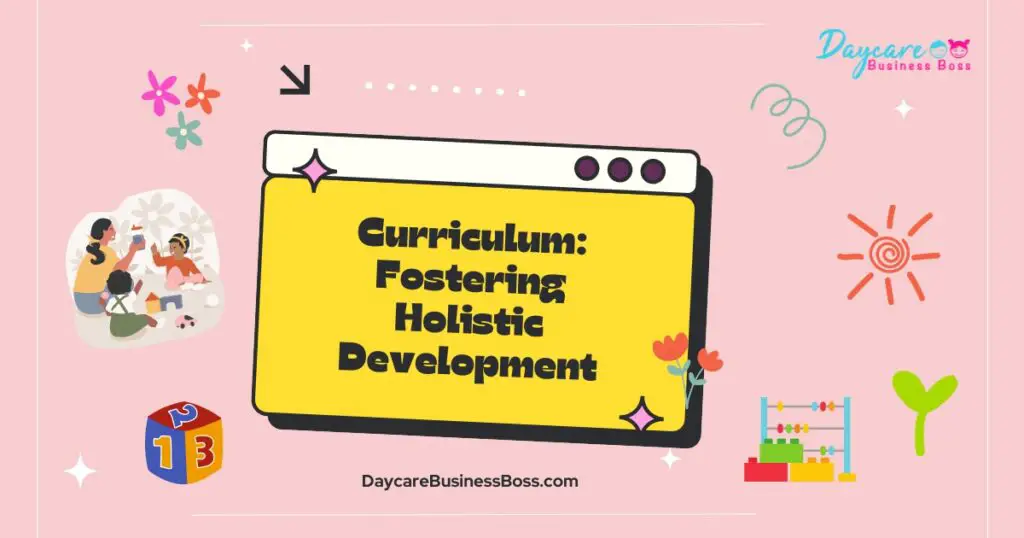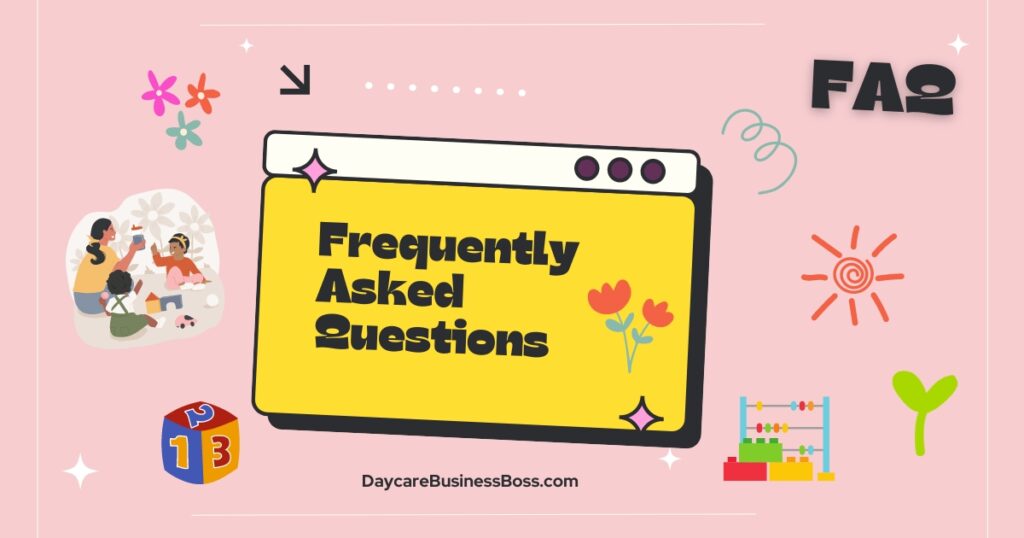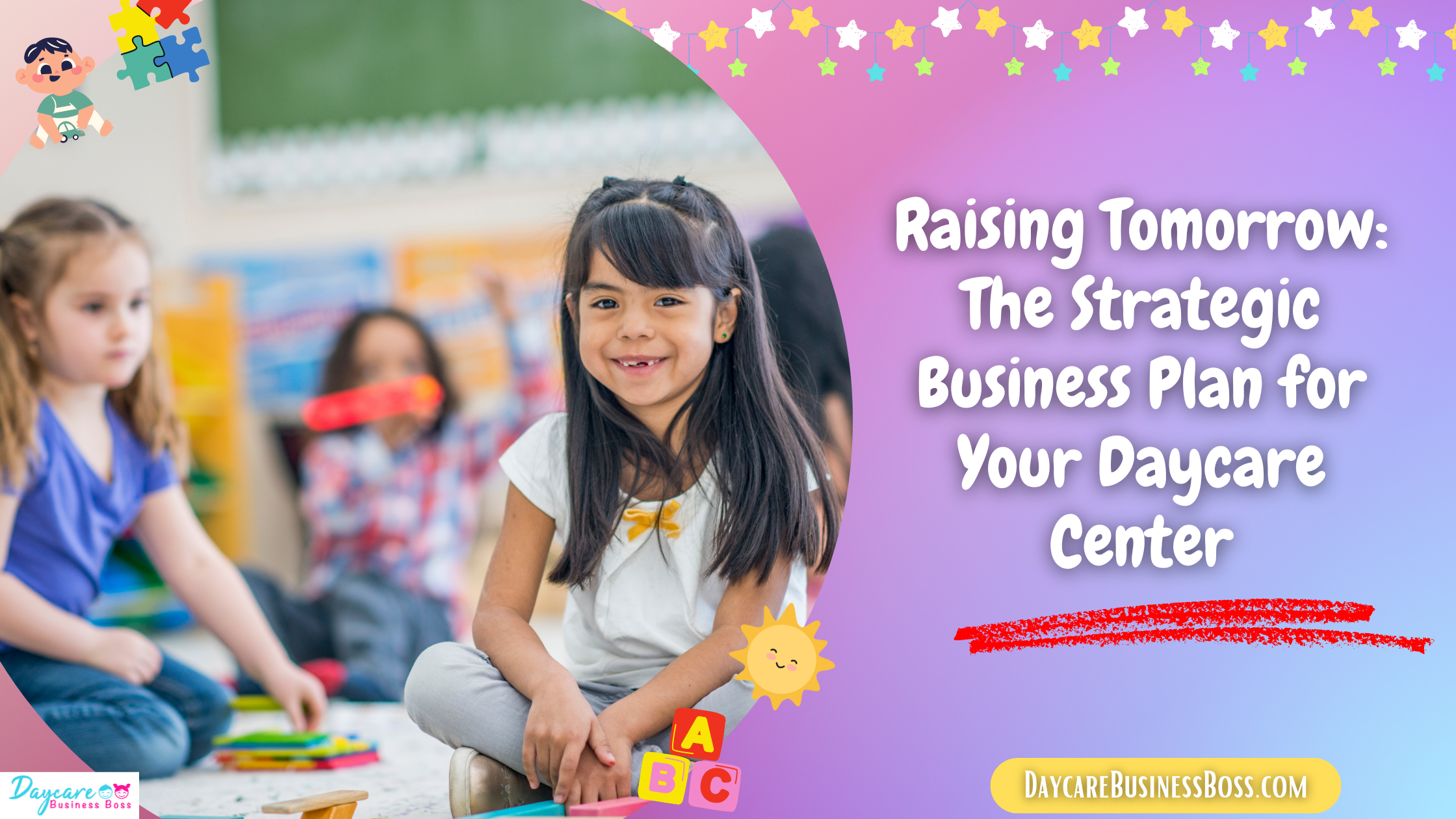Daycare centers play an important role in providing working parents with a safe and caring environment for their children in today’s fast-paced society. However, to ensure viability and long-term sustainability, the construction and operation of a daycare facility require meticulous planning. One of the most effective ways to achieve this aim is to create a comprehensive business plan that includes a variety of key features.
The most useful approach for establishing a daycare center’s viability and sustainability is to develop a business plan encompassing market research, facility setup, staffing, safety measures, curriculum, pricing, marketing, finances, and compliance.
This article digs into the fundamental components of a thorough business plan for opening a daycare facility, emphasizing how this strategic document lays the road for a thriving and sustainable childcare operation.
Market Research: A Foundation for Growth
Market research is the essential cornerstone for the growth of any entrepreneurial effort, and this notion applies even to daycare centers. In this setting, a thoroughly developed business plan is critical for unraveling a tapestry of insights necessary for appreciating the local desire for childcare services. This undertaking entails a complex investigation, diving into aspects such as determining the key target demographics, analyzing the subtle contours of the competitive landscape, and decoding the demand and supply dynamics.
Operators can acquire priceless insights regarding the optimal geographical nexus for the center through a complicated process of meticulous investigation, thereby enhancing accessibility and convenience for parents. This empirical approach reveals the specific programmatic features that hold the possibility of increased appeal, guaranteeing that the center’s offers are meticulously matched to the local populace’s goals. This analytical journey also results in the identification of pricing paradigms that resonate with potential customers.
Facility Setup: Creating a Safe and Stimulating Environment
The physical environment of a daycare facility has a significant impact on the overall encounter of not only the children but also the parents involved. A rigorous delineation of the facility’s architecture and design gains critical significance within the outlines of the business strategy, working as the channel via which safety benchmarks, hygiene protocols, and age-tailored facilities effortlessly interlace. The orchestration of spaces that cater to diverse requisites, including realms of play, learning, and relaxation, which serve as foundations for supporting the comprehensive evolution of young minds, is fundamental to this orchestration.
The construction of a safe and exciting atmosphere that encourages exploration while guaranteeing parents their children’s well-being beckons. The parameters of safety and cleanliness are meticulously integrated into the architectural fabric, allowing for unbroken interaction and development.
The thoughtful incorporation of eco-conscious methods strengthens the center’s resonance with contemporary paradigms of responsible entrepreneurship. The use of sustainable materials not only demonstrates a deep dedication to environmental protection but also recognizes the symbiotic relationship between corporate operations and the world at large. By implementing eco-friendly ways, the daycare center not only pioneers conscientious methodologies but also sets a standard for future-conscious interactions, all while nurturing the young brains entrusted to its care.
Staffing: Nurturing with Competence and Care
A daycare center’s spirit is found in the mosaic of its workers. The recruitment and retention of skilled and compassionate caregivers are critical components in creating a nurturing environment. A thorough exposition of the recruitment trip unfolds within the framework of the company strategy, an expedition precisely planned to describe the contours of staff-to-child ratios, immersion training regimens, and strategies for cultivating long-lasting staff ties.
This fabric of care is intricately woven with threads of understanding child psychology, expertly navigating the maze of health and safety rules, and refining the art of nuanced communication with both the patients and their families. This specific knowledge pervades the daycare center’s culture, leaving an enduring stamp on its reputation and trajectory.
By outlining the recruitment process, which includes stringent selection criteria and extensive background checks, the center not only protects the children under its care but also strengthens its reputation in the community as a pillar of trust. Equally important is the calibration of staff-to-child ratios, which ensures an ideal mix of supervision and individualized attention, which is an essential component in the nurturing equation.
The implementation of thorough training programs, with a focus on child-centric psychology and health procedures, strengthens the staff’s ability to provide excellent care. Retention initiatives, which are acknowledged in the business plan, weave a tapestry of supportive measures to keep staff engaged and dedicated, providing an environment in which caregivers grow as important pillars of the center’s continued growth.
Read more about The Childcare Advantage: Online Training Courses for Skill Enhancement
Safety Measures: Prioritizing Child Well-Being
Child safety is an unchanging cornerstone of daycare centers, a value written in stone. A well-crafted business plan should go beyond the surface, weaving an elaborate tapestry of complete safety standards, perceptive emergency response plans, precise health and sanitation regimens, and a meticulous blueprint for routine facility care. This orchestration of safeguarding goes beyond pragmatism and into the domain of trust-building, an intangible assurance to parents that their treasured children are nestled inside the arms of capable care.
Enveloping youngsters in a cocoon of protection demands a collection of factors ranging from the complexities of immaculate hygiene to the complexities of foresight through emergency reaction preparations. By incorporating these precautions into the business plan, the daycare center sends a strong message to concerned parents. This trust-building process, aided by stringent safety measures, serves as a lynchpin in the center’s reputation and long-term viability.
The elements of security extend beyond the physical environment. Background checks for staff members raise the bar of trust, ensuring that the caregivers’ values coincide with the center’s unshakable dedication to children’s well-being. Procedures that govern entrance to the institution reverberate as a vital aspect of this orchestration, establishing virtual sentinels to protect the facility’s young occupants.
Curriculum: Fostering Holistic Development

The scaffolding of a properly crafted curriculum is critical in creating a daycare center’s legitimacy and efficacy. This fundamental feature resonates not only within the educational sanctuary but also throughout the heart of the business plan, demonstrating the center’s commitment to holistic development. The contours of the educational method are masterfully etched inside this strategic plan, intertwining flawlessly with elucidations of learning objectives and a plethora of age-appropriate activities positioned to energize cognitive, physical, social, and emotional growth.
The pedagogical orchestration’s symphony comes to life via the delineation of meticulously planned activities, each thread is woven to stimulate a specific component of a child’s multidimensional journey toward maturity. The activities are infused with an eclectic mix of art, music, language, and outdoor play, with each hue contributing to a rich tapestry that nurtures young minds at every stage.
This curriculum’s fabric goes beyond basic learning; it serves as the framework for championing children’s developmental milestones. The commitment to a well-rounded educational experience becomes an anthem as the business plan grows, resonating with parents and echoing the daycare center’s mission to nurturing not only information but the flowering of well-rounded individuals.
Pricing Strategies: Balancing Affordability and Qualit
Navigating the maze of price structures is a delicate ballet, a choreography that balances the need for quality services with the requirement of parent affordability. This sophisticated dance unfolds as a symphony of transparency and strategic consideration within the area of business strategy. The essential point is the thorough presentation of pricing levels, a strategic mosaic that beautifully balances quality and economic accessibility.
The demarcation of many payment plans, each organized to resonate with the varying requirements and preferences of parents, enriches the narrative of the business plan. Potential discounts, carefully stated in the strategy, add a harmonious cadence to this pricing symphony, presenting pathways that recognize not only economic considerations but also loyalty and referrals.
Transparent pricing, as illuminated in the story of the business plan, becomes the prism through which parents see the tangible value inherent within the services delivered. This transparency grows into a foundation of trust, on which parents may be confident of the center’s unwavering dedication to their child’s overall well-being and developmental journey.
Read more about The Daycare Entrepreneur’s Playbook: Starting Strong and Sustaining Growth
Marketing Efforts: Building a Strong Presence
Creating an effective marketing symphony is an essential prelude to luring parents into the embrace of a daycare provider. A wise company plan orchestrates a musical medley of techniques that cross the boundaries of online and offline realms, resonating with the echoes of branding, a captivating social media cadence, and harmonious connections with local institutions and schools.
This strategic dance shines through in the company plan’s blueprint, as the story pulsates with the demarcation of marketing techniques that transcend the limitations of physical presence. Online platforms are expertly manipulated, resonating as portals that draw parents from the digital domain into the core of the center’s offerings. At the same time, the alchemy of offline channels intertwines with the harmony, throwing a broader net that snags individuals who thrive on real contacts.
The center’s unique signature emerges as branding, a tapestry woven with the threads of its ethos, principles, and mission. A deftly cultivated social media presence resonates as a digital hearth where the warmth of the center’s care spreads beyond its boundaries. Collaborations with local businesses and schools, as represented in the business plan’s narrative, create a link that benefits the community and strengthens the center’s presence.
This rigorous planning culminates in the development of a positive reputation, an intangible gem fostered inside the community. Word-of-mouth recommendations, carried by delighted parents, emerge as a potent emissary, capable of sweeping through the childcare sector with resonant impact.
Financial Planning: Securing Long-Term Viability
The complicated dance of effective financial planning serves as the foundation for a daycare center’s long-term viability. This dance emerges as a strategic narrative within the pages of the business plan, interweaving the strands of comprehensive financial forecasts that cover the spectrum from inception to fruition. The prelude includes startup costs in this symphony, the conductor conducts the orchestra of operational expenses, revenue predictions sing their lovely songs, and the painful harmony of break-even analysis paints the canvas of fiscal viability.
This collection of financial projections transcends numbers; it serves as a beacon guiding the center through the maze of fiscal maneuvering. These predictions, which are outlined in the business plan, have a dual purpose: they illuminate the way to acquiring the critical first money required for launch, and they serve as a compass that leads the ship of cash flow management to safer financial shores.
Informed decisions, bolstered by these projections, bloom as prudence’s petals. The center’s profitability and long-term viability thrive within its embrace. This precisely crafted business plan is more than just a document; it is a lifeline that intertwines strategy, foresight, and practicality, ensuring the center’s durability and fostering its ascension.
Regulatory Compliance: Navigating Legal Frameworks
A symphony of operation resonates musically with a critical chorus of rules aimed to guarantee children’s safety and well-being within the sphere of daycare centers. The business strategy serves as the libretto, carefully detailing the center’s overture to comply with this regulatory orchestration. The choreography of compliance with licensing, health, and safety regulations, organized by local and national authorities, is exquisitely revealed inside its pages.
This adherence narrative becomes more than a regulatory checklist; it is a proclamation of commitment to the highest levels of childcare. License requirements are regarded as badges of pride, confirming the center’s dedication to operating within the bounds of legal and ethical norms. Health and safety requirements are more than just regulations; they are the basic foundations upon which the sanctuary of child development and nurturing is built.
The narrative of the business plan morphs into a beacon of credibility as it meanders through the complexities of compliance. Its pages resound with a symphony of responsibility, eliciting trust from parents who leave their most precious beings to the care of the center. The greater community views the center as a model of dedication, an oasis where strict adherence to standards fosters an environment of trust and dependability.
Frequently Asked Questions

What is the importance of market research in a daycare center business plan?
Market research assists daycare center operators in understanding local childcare demand, identifying their target audience, and assessing the competitive landscape. This data-driven approach drives decisions about location, program offerings, and pricing, ensuring that the center’s long-term performance is aligned with community needs.
How does a broad curriculum improve the viability and sustainability of a daycare center?
A well-structured curriculum promotes holistic child development, which attracts parents looking for quality education and care. It outlines age-appropriate activities that promote cognitive, physical, social, and emotional development, distinguishing and increasing the center’s reputation. A strong curriculum displays the center’s dedication to the learning and well-being of children.
How can a business plan for a daycare center ensure regulatory compliance?
Regulatory compliance is critical for the legal and ethical operations of a daycare center. A thorough business strategy should include measures for adhering to licensing, health, and safety regulations imposed by local and national authorities. Compliance commitment not only protects the center’s legality but also creates trust between parents and the community.
To learn more on how to start your own daycare checkout my startup documents here.
The information provided by DaycareBusinessBoss.com (“The Site”) is for general informational purposes only. All information on the Site is provided in good faith, however, we make no representation or warranty of any kind, express or implied, regarding the accuracy, adequacy, validity, reliability, availability or completeness of any information on the Site. Under no circumstance shall we have any liability to you for any loss or damage of any kind incurred as a result of the use of the Site or Reliance on any information provided on the Site. Your use of the Site and your reliance on any information on the Site is solely at your own risk.
This blog post is for educational purposes only and does not constitute legal advice. Please consult a legal expert to address your specific needs. Terms and Conditions. (https://daycarebusinessboss.com/terms-conditions/)

Meet Shawn Chun: Entrepreneur and Childcare Business Fan.
I’m a happy individual who happens to be an entrepreneur. I have owned several types of businesses in my life from a coffee shop to an import and export business to an online review business plus a few more and now I create online daycare business resources for those interested in starting new ventures. It’s demanding work but I love it. I do it for those passionate about their business and their goals. That’s why when I meet a childcare business owner, I see myself. I know how hard the struggle is to retain clients, find good employees and keep the business growing all while trying to stay competitive.
That’s why I created Daycare Business Boss: I want to help childcare business owners like you build a thriving business that brings you endless joy and supports your ideal lifestyle.

